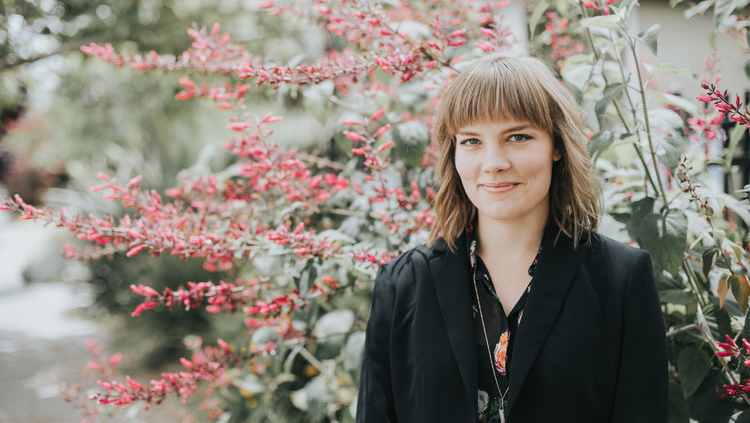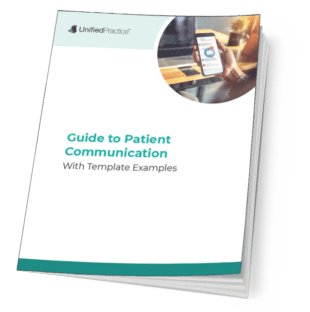We created Clinic Spotlight to share real-world examples of TCM clinics working to grow their business and improve their patients’ experiences.
The following interview is with acupuncture practitioner Katrina Hanson. For the past year and a half she has been operating an integrated practice in Oakland, California, specializing in acupuncture treatment for the LGBT community. She streamlines her practice using Unified Practice’s TCM software.
What are some of the key things you’ve done or developed to improve the business side of your clinic?
I’ve learned a lot about marketing. I really tried to develop my social media and website marketing so my business would be able to reach more patients. My focus area is working with LGBT patients. I’m often working with young patients in their twenties and thirties, so reaching them through social media has been really important.
I started out with Unified Practice pretty much immediately. I was about a month or two into my practice and I was really nervous about taking that step when I was not really making any money yet. But it ended up making it really easy. To not have to transfer a whole bunch of paperwork! I only had a handful of charts to scan in, and now that stuff is already in there and I don’t have to think about it.
Having the online scheduling for my patients is really helpful as well, not having to take calls all the time from people wanting to schedule or change their appointments. They can just do it all online. It’s really helpful.
What are the key lessons that have transformed the way you practice or work with your patients?
Because I’m trying to work in a speciality, and because my practice is fairly new, I’ve sometimes worried about doing everything right. I’ve worried about knowing everything about what I’m doing. I find that I actually have a lot more success — and have much better treatment results with my patients — when I just use the tools that we’re given, like tongue and pulse and constitution-based treatments, and not try to know everything about what’s going on. Not trying to fix every little thing but just listening to my patients and providing a space where they can talk about what they need to talk about and feel comfortable.
What are the most challenging aspects of running or growing your acupuncture practice and how did you overcome them?
Definitely the financial aspects — they have been the most challenging for me. Knowing when is the right time to take another leap, and when I should wait and actually be able to take that income home. I have expanded my practice a couple of times. I actually started out seeing patients just half a day a week. That was it at the beginning. And then one day a week, and then two days, and now I’m at three days. In December I had another acupuncturist join my practice one day a week. So I’ve jumped up in that way. It’s always a little bit scary to take the risk to open up more hours and rent another shift but it’s also necessary to be able to bring in more patients. Sometimes I want to wait until my schedule is totally full before taking on another day, but it’s actually much easier to open up my schedule first and then bring in patients to fill it.
What are some mistakes you made along the way?
Moving too fast sometimes. I’ve bought a bunch of supplies because they’re on sale or other things for my clinic which I didn’t really need. I hired an assistant for a couple of months and then realised it doesn’t make sense for my practice. So trial and error with the business side and expanding things, and discovering what exactly is useful for my practice.
Have you found the acupuncturist community helpful, and has it been difficult to make those connections, to network?
It is a little bit difficult. I find that sometimes acupuncturists are pretty guarded and don’t necessarily want to collaborate. Not always, but in a lot of cases that can be true, especially when talking about the financial aspects of a practice. A lot of people don’t want to go there. It has been really nice bringing in another acupuncturist to work with me, because we share patients and can talk about those cases. It is really nice to be able to share that with somebody else.
What advice would you give a practitioner that is just starting their clinic?
I would say go for it as much as you can. Obviously there are financial concerns that you have to address, but the people I see who keep their full time job and only ever practice one day a week for years and years never grow because they’re not putting their full selves into it. I think if you really want to make a full time practice succeed you just have to go for it. Sure, have another job too, if that’s what you have to do, but really make acupuncture your focus and make it happen.
What aspect of the work do you enjoy the most?
I love my specialty. It’s really fun. I work with LGBT patients and specifically in transgender medicine — supporting transition, hormone regulation, side-effects of hormones, pre- and post-surgical recovery. And also just the general medicine stuff that we do for every other patient, but with a focus on creating that safe space where trans and LGBT patients can come and know that their identities are going to be respected and where they can share sensitive information.
Is there anything else you’d like to say about using Unified Practice?
For my speciality what’s really nice is that the intake information for patients lists a blank box for gender, so they can type in anything they want. And that information goes into the top of the patient file. I can go back in and edit it if I want to. Often that’s what I’ll do. They’ll write in their gender and then on my intake forms I also ask the pronoun that they want me to refer to them by. I can go back into their patient files later and edit it, add in their pronoun as well, so we know how to refer to patients without having to dip back into that intake file and look it up. That’s been really nice.
*
We thank Katrina Hanson for taking the time to participate in our Clinic Spotlight series and we wish her continued success.
Stay tuned for more Clinic Spotlight interviews where we’ll discuss what lessons, tactics, and marketing tools other clinics are using to grow their TCM and acupuncture practices.




